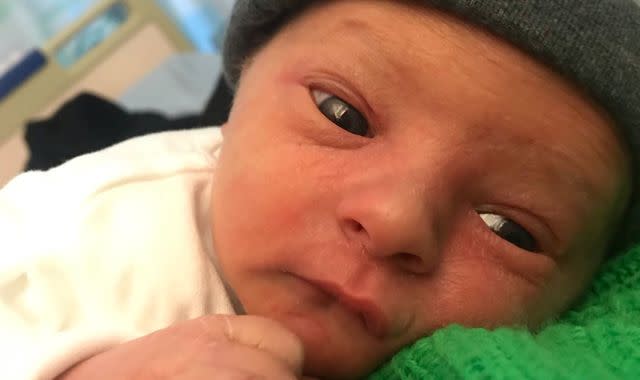Nottingham maternity scandal: Families still tell of 'poor care' a year after review launched

Families are still coming forward with stories of poor care a year after an independent review was launched into maternity services at a scandal-hit NHS trust.
More than 1,700 cases of possible harm to newborn babies and mothers are being examined at Nottingham University Hospitals NHS Trust over a 10-year period.
The investigation is led by midwife Donna Ockenden, who led a similar review into maternity care at Shrewsbury and Telford NHS Trust. In 2022 she concluded that catastrophic failures there may have led to the deaths of more than 200 babies.
Solicitor Natalie Cosgrove, who is representing a number of Nottingham families, told Sky News that she had been contacted by people concerned about their care "as recently as March this year".
"Things may be improving as far as the trust would like to say reputationally but I'm not seeing it myself," she said.
"Those at the top, many appear to be well-meaning, want to improve care, want to show change, but I'm yet to see that filter down.
"That's not scaremongering, this is a cry to those senior members to listen to your staff, listen to families, recent families coming forward and take them seriously."
Bereaved parents had campaigned for an investigation into maternity care at Nottingham City Hospital and the Queen's Medical Centre for years, and have formed a support group to help others.
In 2020, Kim Errington lost her son Teddy, aged just one day old after they were discharged from Nottingham City Hospital.
"Teddy was small for his gestational age when he was born at 41 weeks," she said. "He should have automatically triggered the hypoglycemic monitoring pathway which meant he should have had his bloods checked, he should have had monitored feeds, he should have been kept in and closely monitored for 24 to 48 hours."
The trust has admitted a "breach of duty" and that his death could have been avoided.
Kim has since given birth to a baby daughter, Elfi, at a different trust.
"He'll never be gone," Kim said. "If I didn't have Elfi I'd be a very different person, in a very different place. I'm so grateful she's here and healthy but it doesn't eradicate what happened."
In a statement given to Sky News, Anthony May, chief executive of Nottingham University Hospitals, said: "We know that the independent review is important for women and families, and for the future of the trust.
"Over the past year, we have prioritised our engagement with the review and will continue to do so.
"Above all, we are committed to making the necessary improvements to our maternity services, and supporting our teams to deliver safe and informed care, for all women and families."
Read more:
Nottingham maternity scandal set to be biggest in NHS
Why do maternity scandals keep happening?
He added: "We work closely with the review team led by Donna Ockenden and meet regularly with the team to listen to the feedback, respond accordingly and inform our improvement plan.
"We are determined to fulfil the commitment we made in July to an open and honest relationship with the families involved in the review and all women and families within our maternity services.
"We still have a long way to go but we are making sustainable progress in a number of areas to benefit the safety and wellbeing of women, families and staff as part of our Maternity Improvement Programme.
"We are focused on learning from incidents, improving our culture and communicating more effectively with women and families that use our services."
Dr Jack Hawkins was a consultant at the trust in 2016 when his daughter Harriet was stillborn. Initially the family was told that she had died of an infection but they successfully pushed for an independent investigation.
They received a £2.8m payout from the NHS after 13 failures in care were found. Harriet's death was described as "almost certainly preventable".
Click to subscribe to the Sky News Daily wherever you get your podcasts
Dr Hawkins told Sky News that Nottingham Hospitals Maternity Family Support Group was being contacted by patients who had "trouble in the last few weeks" at the trust and that due to the volume of work, the Ockenden report could take a further 12 months to publish findings.
"What I hope for is that people will be held to account, that people who haven't been held to account will see there's consequences in lying, of poor care, of not doing the right things, and that it will change," he said.

 Yahoo News
Yahoo News 
